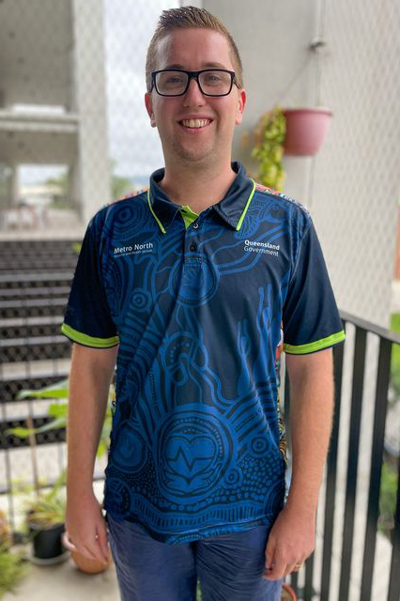Delirium prevention at STARS

Daniel, Acting Nurse Unit Manager Geriatric Evaluation and Management Unit (GEMS) STARS
March 15 was World Delirium Awareness Day, a day which seeks to increase the recognition, education, and prevention of delirium.
Delirium is a serious medical condition which can develop when people are acutely unwell or are undergoing medical treatment. Delirium causes changes to a person’s usual mental functioning and its onset can be rapid (hours or days).
People with delirium may become forgetful, confused or disoriented, experience mood swings, or see, hear or believe things that aren’t real. Delirium is sometimes confused with other conditions such as depression or dementia.
The theme for this year’s World Delirium Awareness Day was ‘Delirium is Everybody’s Business’.
The team from the geriatric evaluation and management unit at STARS provide specialised care to older people with chronic or complex conditions relating to ageing, disability, and cognitive problems. Recognising their patients have a higher risk of delirium, Daniel Carlyle, the unit’s acting NUM, and his team have implemented delirium prevention strategies.
“Simple strategies such as having room orientation boards with the date and time displayed and asking the patient’s family to bring in familiar objects from home like a picture or a blanket can be really helpful,” Daniel said.
“We also mimic routines similar to home or have a routine in place which includes encouraging normal sleep and wake cycles. Minimising room changes is also beneficial for our patients.”
Keeping both mentally and physically active is recognised as playing an important role in preventing delirium. The unit’s staff take time to play board games like Scrabble with the patients as activities like these keep the patients mentally alert and encourage social interaction.
STARS’s wonderful building design incorporating outside balconies is also used to its full advantage, with plant pots providing an opportunity for those patients who have a green thumb.
“We encourage the nurses to take the patients out to the balcony for fresh air, and if they are able, they can tend to the plants and help water them,” Daniel said.
